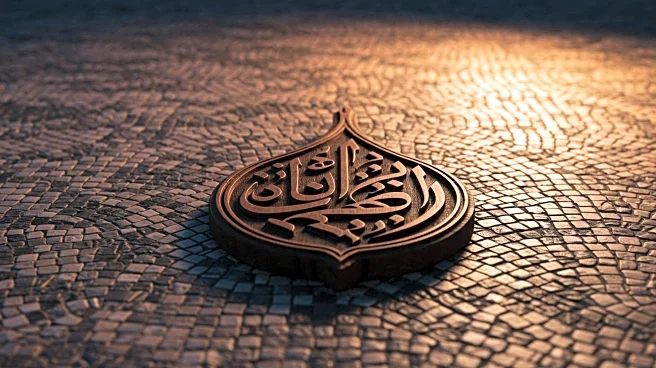What's Happening?
In Syria's southern city of Sweida, hundreds of Druze community members protested on Saturday, demanding self-determination. This marks the largest demonstration since deadly clashes in July between Druze militias and local Sunni Muslim Bedouin tribes, which saw government forces siding with the Bedouins. The protests come amid Syria's ongoing ethnic and religious tensions following the collapse of the Assad regime. Protestors expressed dissatisfaction with the interim government in Damascus and called for justice for atrocities committed against the Druze. Some demonstrators even waved Israeli flags, acknowledging Israel's intervention during the July clashes.
Why It's Important?
The protests underscore the fragile state of Syria's post-Assad transition, highlighting deep-seated ethnic and religious divisions. The Druze community's demand for self-determination reflects broader regional dynamics, where minority groups seek autonomy amidst political instability. The situation could influence Syria's future governance structure and impact regional geopolitics, particularly given Israel's involvement. The unrest also poses challenges for the interim government, which must navigate complex sectarian tensions while maintaining national unity.
What's Next?
The interim government has established a committee to investigate the violence, with a report expected within three months. The outcome could affect the Druze community's demands and the broader peace process in Syria. Continued protests and international reactions, particularly from Israel, could further complicate the situation, potentially leading to more significant geopolitical shifts in the region.











